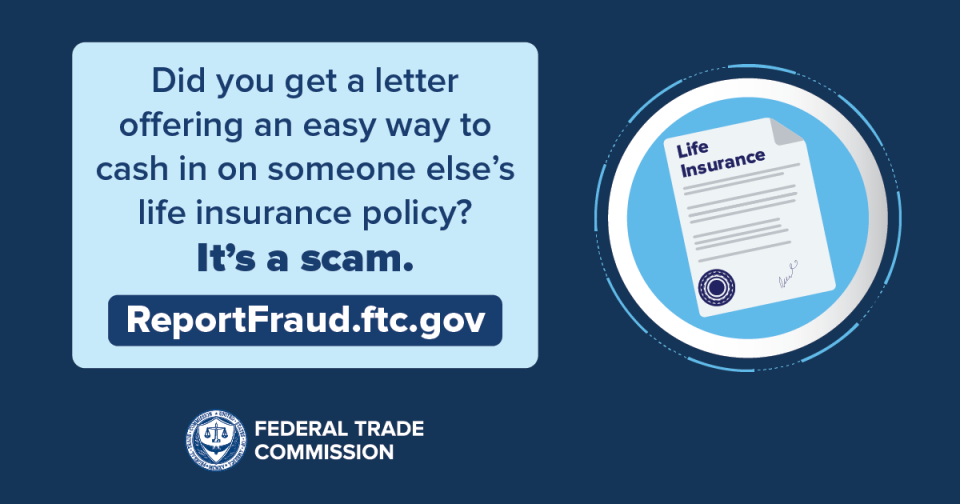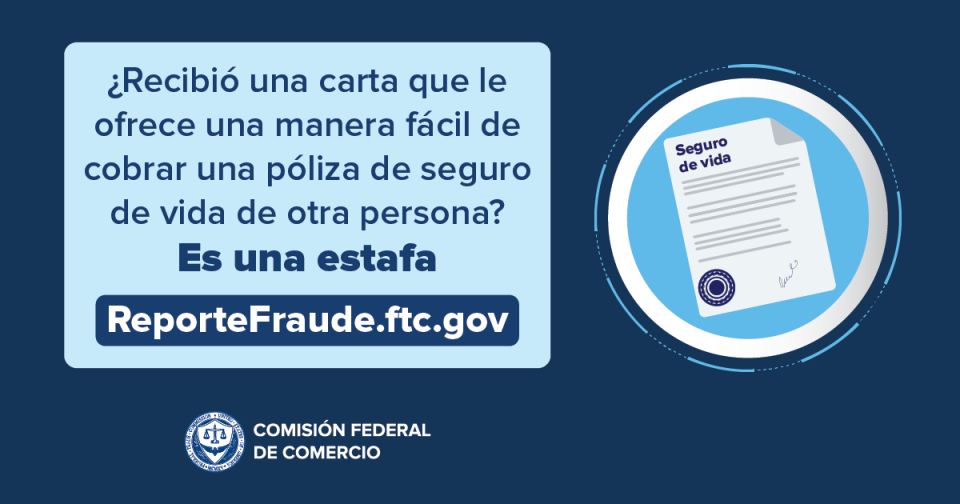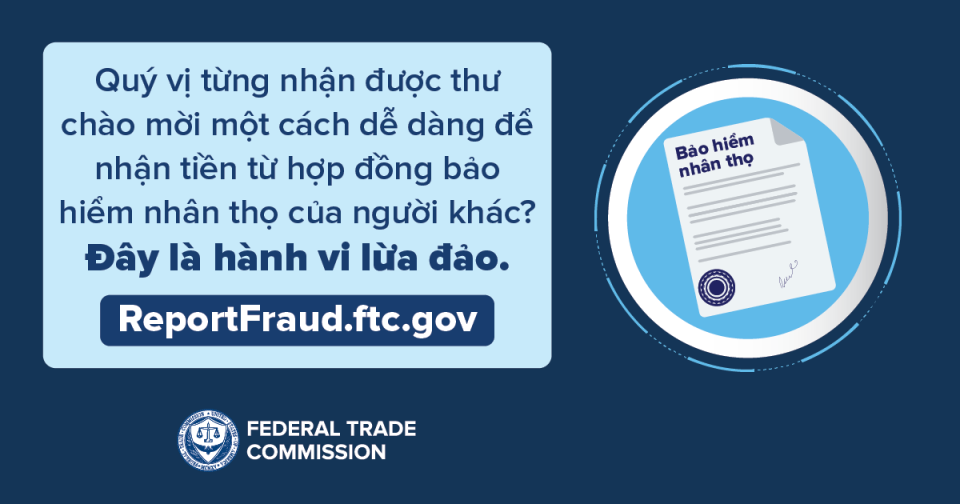Read this post in:
You can’t cash in on a stranger’s life insurance policy — even if a lawyer says you can. The FTC has heard reports from people in Korean, Vietnamese, and Latino communities who got letters in the mail from a supposed “lawyer” in Canada. The letter looks like it’s from a law firm and offers an “easy way” to get money using someone else’s life insurance policy. But it’s a scam. Here’s how to spot it.
In the letter, the “lawyer” says they have a deceased client with an unclaimed life insurance policy worth millions. Because you (supposedly) have the same last name and nationality as the deceased, the “lawyer” can add your name to the policy and split the money between you, their law firm, and a charity. All you have to do, they say, is keep this information secret and email them immediately.
So what’s really happening here? There is no lawyer. It’s a scammer. And if you email them, they’ll ask for personal information. Or money. Or both. And that life insurance payout? It doesn’t exist.
If you get one of these letters:
- Don’t respond. Never share your information with someone who contacts you and says they need it. And never send anyone cash or pay with gift cards, wire transfers, or cryptocurrency.
- Share this information with a friend. You probably throw away these kinds of letters. But you may know someone who could use a friendly reminder to help them spot the scam.
- Report it to the FTC at ReportFraud.ftc.gov. Your report makes a difference: by telling your story to the FTC and to others in your community, you help others avoid the scam.
Want to stay on top of the latest scams? Get the FTC’s Consumer Alerts delivered to your email inbox. Sign up: ftc.gov/ConsumerAlerts.
Resources to share:








The incredibly huge red flag that people never notice is that neither their name, or the name of the "deceased", are never mentioned in the letter/email. All they see is $$$.
In reply to The incredibly huge red flag… by M.J.
I received one of these today. Both my name, and the name of the supposed deceased were listed in the letter.
This scam has been circulating for years. We received a fax in our office that said this same thing because one of our attorneys had the same last name as a deceased, and he could potentially make millions. I threw the fax out.
Perhaps it would be helpful to let the public know that in order to make a claim as a beneficiary of an insurance policy, you would have to fill out a form provided by the insurance company and provide proof that you are the beneficiary who is listed in the policy. I think usually the beneficiary reaches out to the insurance company.
Not I never get a letter about that.
Got one of these letters today. Yup from a phony law firm in Canada. Exactly as advertised.
Remember if it sounds to good to be true IT IS!
Just received one of these letters from a law firm in Atlanta, GA. I'm in Canada.
In reply to Just received one of these… by DC
Interesting, I’m in Atlanta. I just received one from Canada.
In reply to Interesting, I’m in Atlanta… by Bmorgan
I received one today, it is supposedly, from a law firm in Canada too.
Looks like I won a jackpot!!! (not really)
In reply to I received one today, it is… by Dmitry L
I received a letter from Linhoff, Sporer and Partners asking me to contact them to share an unclaimed life insurance policy with someone with the same last name. They have a website that I looked up.
Www.linhoff, sporer and Partner.
In reply to I received a letter from… by Louise Murphy
I got the same letter from the same company using my name and a deceased person's name. I noticed that they have a website too, but I have watched too many videos cracking down on spammers that I know spammers can also create fake websites as well. I'm not sure what to think about this.
Yep, I received one last week of November in Canada from a law firm in NY State addressed to my name as above. The deceased was Late Dr. Marcus D.....so you can see where I knew it was certainly a scam. Worst part is, I go to report it to OPP and they have no interest and give me antifraud number for RCMP. Their site isn't working and you can't leave a message. Sounds like we are very protected in Canada and ensuring our agencies are doing their best (sarcasm).
Just received letter the same from
Sean Barnett Esq.
BARNETT CROWE & PARTNERS LLP
2 St Clair Ave W,
Toronto, ON M4V 1L5 CANADA
In reply to Just received letter the… by jeff
Me, too! From David Griffin, esq at the very same address. I am entitled to 90% of $10MM.
In reply to Me, too! From David Griffin,… by liz
Let's have some drink $10 Mil
In reply to Just received letter the… by jeff
I got the letter on Nov 15th 2023 from Sean Barnett with the same address. They asked my consent to be in partnership with them for the claim of the policy benefit of $10,550,300.
Even if I can claim this, too much money will destroy my life.
In reply to Just received letter the… by jeff
I got the same letter with the same purpose
In reply to I got the same letter with… by Nguyễn
Got the same letter from Neil Adams from Canada.